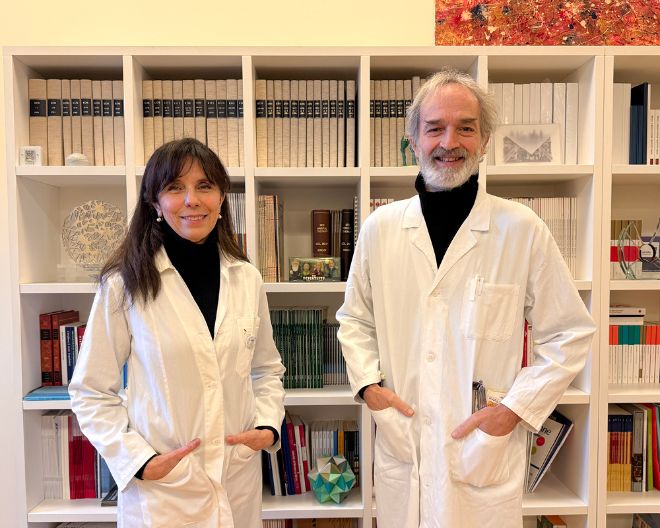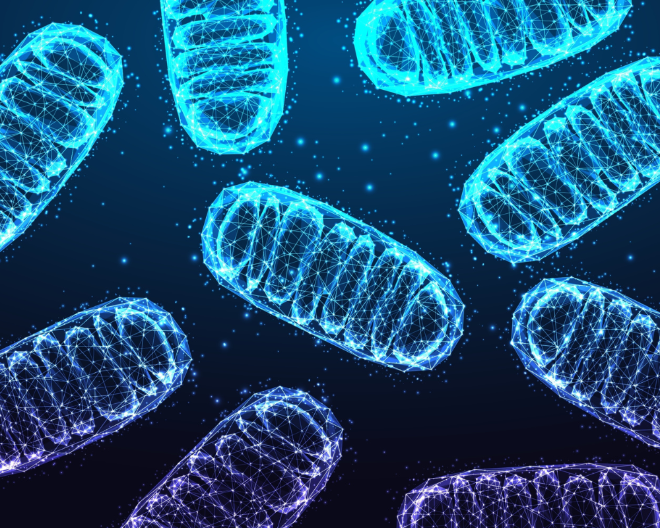
The study published in Nature by researchers from IRCCS San Raffaele Hospital in Milan identifies a new potential therapeutic target to slow down the progression of a still highly lethal tumor
In a paper published in the prestigious journal Nature, researchers from the IRCCS San Raffaele Hospital have demonstrated the importance of a subset of immune system cells - IL-1β+ macrophages - in the progression of pancreatic ductal adenocarcinoma (PDAC).
The group of scientists - under the leadership of Professor Renato Ostuni , Associate of Histology at UniSR and head of the Genomics of the Innate Immune System laboratory at the San Raffaele Telethon Institute for Gene Therapy ( SR-Tiget) - have discovered a mechanism that promotes pancreatic cancer growth based on the interaction between IL-1β+ macrophages and certain tumor cells with a specific inflammatory profile and high aggressiveness.
The results of the research - supported by the AIRC Foundation for the Research on Cancer, by the European Research Council (ERC) and the Ministry of Health - suggest that blocking this interaction could be a new strategy to counteract the onset of pancreatic cancer in subjects at risk or to enhance the response to immunotherapy in patients already suffering from the disease.
0/resolutions/res-l1920x10000/Scoperto_meccanismo_chiave_patogenesi_tumore_pancreas_UniSR-(1)0.jpg)
The role of macrophages and inflammation in pancreatic cancer
Macrophages are a type of cell of the innate immune system, essential for protecting tissue integrity and activating protective responses against pathogens and other external threats. In tumors, however, the functionality of macrophages is profoundly reprogrammed, to the point that these cells support, rather than counteract, the progression of the disease.
Tumor-associated macrophages (or TAMs) are important targets of immunotherapy, as their abundance is generally correlated with treatment resistance, metastasis, and poor patient survival. In the case of pancreatic cancer, however, the heterogeneity of TAMs and the complexity of their interaction with the tumor microenvironment has made it difficult to date to target these cells for therapeutic purposes.
“In addition to being characterized by a compromised immune system that limits the effectiveness of even the most advanced immunotherapies, pancreatic cancer has a strong inflammatory component,” Renato Ostuni specifies. “This is particularly relevant since the onset of tissue damage – and the resulting inflammatory responses, such as pancreatitis – represent known risk factors for neoplastic development.”
What the ability of inflammation to promote the growth of pancreatic cancer depended on was until now unclear: with this study, researchers have defined one of the central mechanisms of this process.
San Raffaele research
Thanks to innovative single-cell and spatial transcriptomics technologies capable of revealing the molecular characteristics of thousands of individual cells in their natural microenvironment, the Ostuni research group has identified a new subgroup of macrophages – called IL-1β+ TAMs – in patients with pancreatic cancer. The researchers discovered that these cells are capable of stimulating the aggressiveness of tumor cells in their vicinity, inducing their inflammatory reprogramming and promoting the release of factors which, in turn, favor the development and activation of IL-1β+ TAMs themselves.
“It's sort of a self-reinforcing vicious cycle. Macrophages make tumor cells more aggressive, and tumor cells reprogram macrophages to promote inflammation and disease progression” explains Ostuni. The study also found that IL-1β+ TAMs are not randomly distributed, but are located in small niches near inflamed tumor cells. It is precisely the physical proximity between macrophages and tumor cells that could support the disease progression.
“We conducted experiments in the laboratory to interfere with this circuit. The results, albeit based on experimental models, are encouraging. This approach has in fact led to a reduction in inflammation and a slowdown in the growth of pancreatic cancer."
conclude Nicoletta Caronni and Francesco Vittoria, among the main authors of the study.
/resolutions/res-l1920x10000/Scoperto_meccanismo_chiave_patogenesi_tumore_pancreas_UniSR-(2).jpg)
The integration of skills
The study is the result of close collaboration between researchers and doctors at the IRCCS San Raffaele Hospital.
“This has allowed us to study the characteristics of the patients' immune system with very advanced methodologies, identifying new biological therapeutic targets”
say professors Massimo Falconi, director of the Pancreas Center, and Stefano Crippa, pancreatic surgeon of the same unit.
An approach, that of the Ostuni group, in which the planning of activities and the interpretation of the results of the experiments at the counter are perfectly integrated with the analysis of data through bioinformatics. “An interdisciplinary and effective method, essential for conducting cutting-edge scientific research”, specify Federica Laterza and Giulia Barbiera, computational biologists and main authors of the study.
/resolutions/res-l1920x10000/Scoperto_meccanismo_chiave_patogenesi_tumore_pancreas_UniSR-(4).jpg)
Future developments
The data from the study suggest that blocking this inflammatory loop could be used to increase the effectiveness of immunotherapies against PDAC, but also as a preventive strategy in subjects at risk.
“DNA mutations are a necessary but not sufficient element for the development of tumors. Inflammatory responses and tissue damage can cooperate with mutations to increase the risk of pancreatic cancer” Ostuni specifies.
The researchers then conclude:
“We have made a good step forward in understanding the biological processes underlying the pathology. However, we are at a state of preclinical research still far from application on patients. The next few years will be essential to identify the potential and the most appropriate ways to act on this new therapeutic target."
You might be interested in

Multiple sclerosis, breakthrough in research: researchers have identified a molecule that promotes repair of the nervous system

The microbiome as an ally against myeloma

Intrecci: a UniSR project for more inclusive and accessible cancer diagnosis

